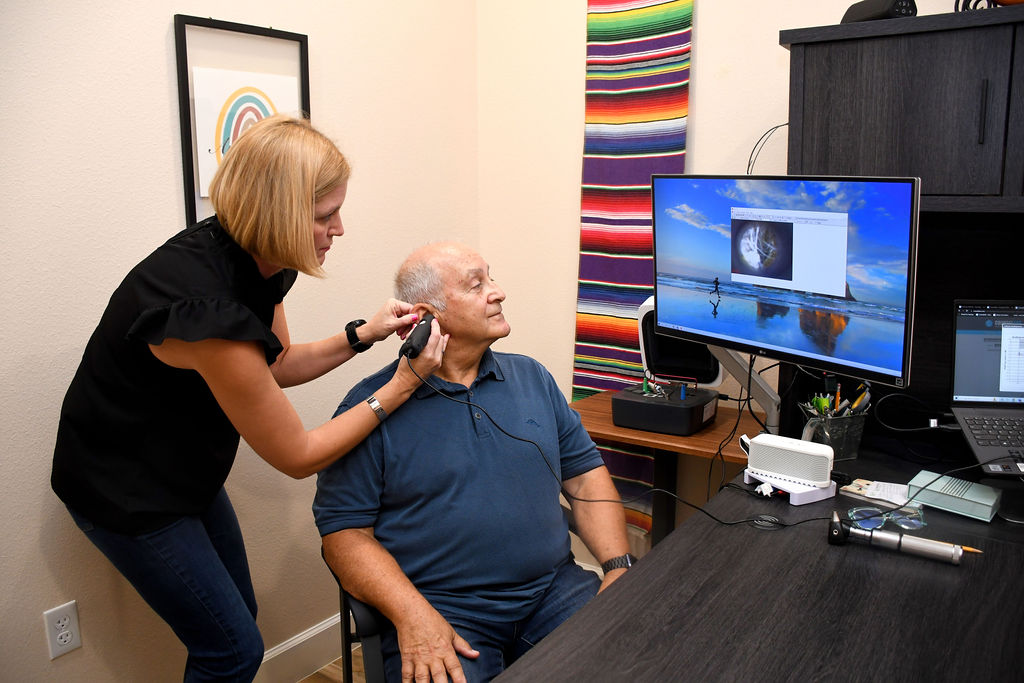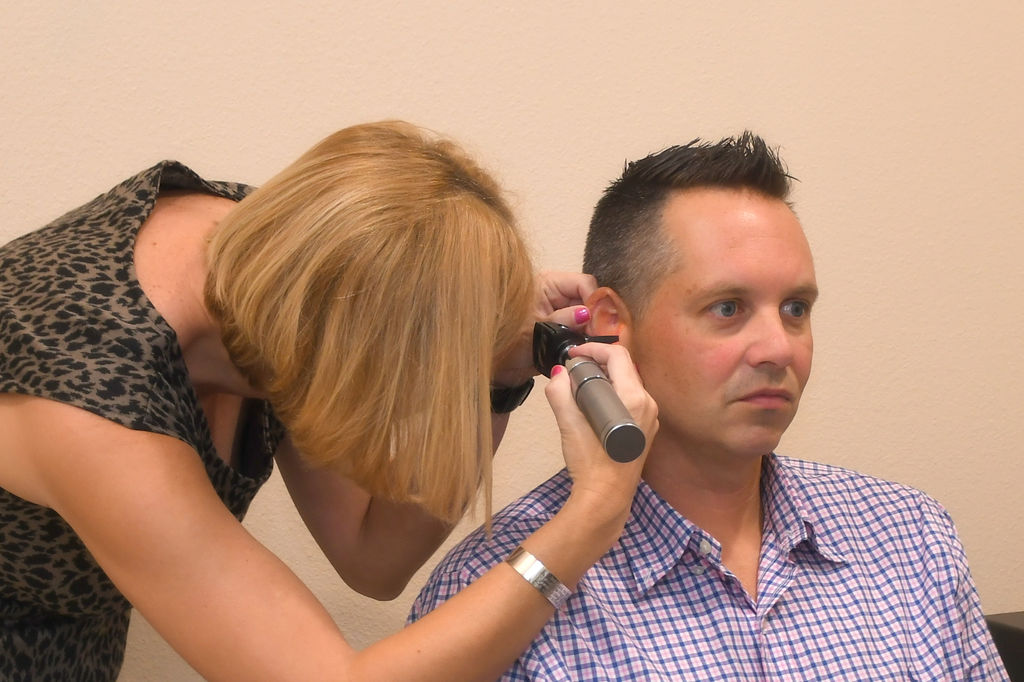
Harbor City Hearing Solutions provides comprehensive hearing diagnostic services along with preventative and rehabilitation hearing healthcare services.
We aim to build long-term relationships and support the ongoing hearing needs of our patients every step of the way.
We offer diagnostic services for the following:
Tinnitus
Tinnitus is a condition in which a person perceives a ringing, whooshing, buzzing, humming or any other similar noise in the absence of an external source. This condition is caused by a variety of conditions and getting an accurate diagnosis is key in mapping out a treatment plan.
A hearing test can be initially performed to diagnose tinnitus. Doctors may be able to diagnose the cause of tinnitus by comparing what a patient can hear to what people of the same demographic are expected to hear.
Further tests for tinnitus include imaging tests such as MRI or CT scans to check if there are deformities or damages in the ears that are not visible to the naked eye. Imaging tests are also helpful in getting down to the root cause of tinnitus because standard plain film X-rays can’t detect tumors, blood vessel disorders, or other underlying conditions that can affect hearing.
Auditory Processing Disorder
Auditory processing disorder is a medical condition where the brain has a gap in filtering and processing sounds and words. In most cases, APD is common in children. A patient with auditory processing disorder is usually suspected to have hearing loss but when the hearing test results come out, hearing is actually good or normal.
In short, the brain of a person with auditory processing disorder perceives sounds incorrectly, affecting the person’s ability to distinguish and understand words with similar sounds.
There’s no exact formula or process for diagnosing auditory processing disorder. A battery of tests is needed to be performed by an audiologist who is the primary person responsible for monitoring the patient’s hearing.
Sensorineural Hearing Loss
Sensorineural hearing loss occurs when the nerve pathways or cells of the inner ear get damaged. A person diagnosed with SNHL may find soft sounds muffled or difficult to hear. Severe SNHL may also perceive loud sounds as muffled or distorted.
Sensorineural hearing loss is the most common type of hearing loss. Primarily, sensorineural hearing loss can be checked through a physical exam where an audiologist can look for any signs of inflammation, damage to the eardrum, fluid or earwax, and presence of foreign bodies.
Further diagnostic tests for SNHL include tuning forks and an audiogram.
Meniere’s Disease
Meniere’s disease is a condition of the inner ear that can lead to dizzy spells and hearing loss. Typically, Meniere’s disease only affects one ear. It can occur at any age but onset is most common during young and middle-aged adulthood.
A Meniere’s disease diagnosis requires two episodes of vertigo, lasting 20 minutes or longer but not longer than 1 hour. A hearing test is needed to verify hearing loss as well.
Additional diagnostic tests for Meniere’s disease include balance assessments, blood tests, and imaging scans.
Vertigo
Vertigo is considered to be a symptom rather than a condition itself. A person diagnosed with vertigo may feel a sensation that the room is moving or spinning. The severity of vertigo varies from person to person; some may feel minimal dizziness while others may experience a vertigo episode so severe that they find it difficult to maintain balance which could affect everyday tasks.
Vertigo episodes may have a sudden onset and last for a few seconds or they could also last much longer (days or weeks).
- Symptoms associated with vertigo include:
- Dizziness
- Loss of balance
- Feeling sick or nauseous
The first step in diagnosing vertigo is to rule out any other underlying conditions and symptoms such as hearing loss, nausea, tinnitus, vomiting, or fullness in the ear. You will also be asked if anything makes the vertigo symptoms worse when you move or position your head in a particular direction.
A physical exam will primarily be carried out which includes an audiologist looking inside the ears or a physician checking the eyes for signs of uncontrollable eye movements.
Hearing test for Vertigo
If a patient has vertigo or hearing loss, any of the hearing tests may need to be carried out:
Audiometry test – a patient will be asked to listen to sounds through headphones and indicate whenever they hear a sound. An audiometer will be used to perform this test.
Tuning fork test – An audiologist will tap a tuning fork while holding it on each side of the patient’s head. Tuning forks produce sound waves at a fixed pitch when gently tapped. This test is used to assess hearing and vibratory sensation.
Depending on the result of the hearing test, patients may be referred to other specialists to undergo other specialized tests including videonystagmography, caloric testing, posturography, MRI scans, or CT scans.
Hearing Diagnostic Services in Rockledge, FL
Harbor City Hearing Solutions provides a wide range of diagnostic services related to hearing and balance disorders. Let’s work together to improve your quality of life!
Contact us today to schedule a consultation!



